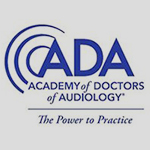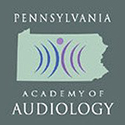The Types of Auditory Processing Disorders We Treat in Lancaster, PA
 An auditory processing disorder (APD) is a condition that affects the way the brain processes sounds. Many people who have an undiagnosed APD believe they have hearing loss, but that may not be the case. Instead, they may be hearing the sounds fine, but their brain is not processing the information correctly. Because an auditory processing disorder can cause learning difficulties and social challenges, an early diagnosis and treatment are important. If you suspect that you or a child you know has an APD, you can turn to Hearing Smile Professionals in Lancaster, Pennsylvania, for an accurate diagnosis and appropriate treatment.
An auditory processing disorder (APD) is a condition that affects the way the brain processes sounds. Many people who have an undiagnosed APD believe they have hearing loss, but that may not be the case. Instead, they may be hearing the sounds fine, but their brain is not processing the information correctly. Because an auditory processing disorder can cause learning difficulties and social challenges, an early diagnosis and treatment are important. If you suspect that you or a child you know has an APD, you can turn to Hearing Smile Professionals in Lancaster, Pennsylvania, for an accurate diagnosis and appropriate treatment.
After confirming an auditory process disorder diagnosis, an audiologist at Hearing Smile Professionals will further evaluate the APD to determine its type. Each type of APD has specific characteristics and management strategies, and some people have more than one. The different types of auditory processing disorders include:
Decoding
An individual with decoding APD will often mishear speech without realizing it. They may be unable to distinguish similar sounds or keep up with conversations, especially in the presence of background noise.
Prosodic
An individual with prosodic APD may have trouble understanding the nonverbal aspects of communication, such as pitch, tone, emphasis, inflection, and implied meaning. They may also speak in monotone and struggle to understand cause and effect.
Integration
An individual with integration deficits may be unable to multitask while listening, such as taking notes while attending a lecture or having a conversation while typing. They may also have difficulty synthesizing information so it can be utilized.
Organizational
An individual with organizational processing issues may have difficulty remembering categories of information, especially if it must be recalled in a specific sequence. This can make it especially challenging to follow long or multistep directions.
Diagnostic Criteria & Assessment Methods
Hearing Smile Professionals is equipped to accurately diagnose various types of Auditory Processing Disorders (APDs) through specialized assessment techniques and diagnostic criteria. This includes specialized auditory processing tests such as speech-in-noise testing, dichotic listening tests, and temporal processing assessments. Behavioral observations during these tests provide insights into how individuals process auditory information in various contexts.
Additionally, thorough case history interviews with patients and caregivers help audiologists gather essential information about developmental milestones, educational history, and behavioral concerns. By integrating these methods, we aim to accurately diagnose and differentiate between APD subtypes, facilitating targeted interventions and support for improved auditory processing abilities.
Overlap & Co-occurrence of APD Types
Auditory Processing Disorders can often present with overlapping symptoms or co-occur with multiple subtypes within individuals. At Hearing Smile Professionals, we recognize the complexity of auditory processing difficulties, which may involve deficits in various areas such as auditory discrimination, temporal processing, and auditory sequencing. It is not uncommon for individuals to exhibit symptoms that span different APD categories, making accurate diagnosis and tailored treatment crucial.
Our approach emphasizes comprehensive assessment methods that account for potential overlap and co-occurrence of APD types. By conducting specialized auditory processing tests, behavioral observations, and detailed case history interviews, we aim to identify and differentiate between overlapping deficits effectively.
If you have questions about the different types of auditory processing disorders, contact Hearing Smile Professionals today to request a consultation with an audiologist in Lancaster, PA. We proudly provide advanced, specialized care for all types of APDs.



